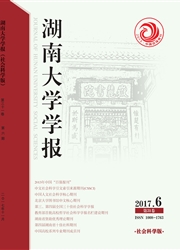

 中文摘要:
中文摘要:
东汉末年,浮屠、黄老为一家,神仙家异常活跃,而佛教初来乍到,社会影响小。牟子皈依佛法,又三教并重,十分重视孟子。《牟子理感论》有实名涉孟语句6例、显性——匿名涉孟语句ll例、孔孟并称4例,不仅文献学指标高,而且思想史分量重。孟子的许多思想及语句,尤其是距杨墨、辩夷夏、权时地等核心观点,得到《牟子理惑论》智慧的理论阐释与有效的实际运用,并藉以服务于佛教的自立及其中国化;牟子不仅以孟援佛,还多次并称孔孟,试图在大思想史上提升孟子的地位。《牟子理惑论》既是东汉重要的孟子学作品,也是交州孟子学的代表作,更是中国佛教史上第一篇孟子学文献,其在孟学史上的地位举足轻重。
 英文摘要:
英文摘要:
In the later Eastern Han dynasty, immortals-advocators took an active part in the society together with Buddhism and Daoism as a school whereas Buddhism exerted fewer influences on society because of its new arrival. Mou-zi preferred Buddhism in spite of respect for three schools of Buddhism, Daoism and Confucianism, especially for Mencius. Mou-zi's masterpiece called Mowzi's Theory of Doubting about Reason included six quotations with the real name of Mencius, eleven directly-anonymous quotations and calling Confucius and Mencius simultaneously four times which is valuable not only in the discipline of literature but also in the history of thought. Lots of Mencian words and ideas, especially those of objection against Yang-zhu and Mo-di, arguments about Chinese nation and other nations, and weighing and changing in accordance with time and place etc, are tactically interpreted and effectively used in order to serve establishment and localization of Buddhism in China by Mou-zi who not only supported Buddhism with Men-cian thoughts, but also called Confucius and Mencius simultaneously in expectation of improvement of Mencian status in the history of great thought. The book Mou-zi's Theory of Doubting about Reason is not only an important book of Mencian learning in the Eastern Han dynasty, but also a masterpiece of Mencian learning in the region of Jiao Zhou and last but not least the first literature of Mencian learning in the history of Chinese Buddhism, which is of great sig-nificance in the history of Meneian learning.
 同期刊论文项目
同期刊论文项目
 同项目期刊论文
同项目期刊论文
 期刊信息
期刊信息
